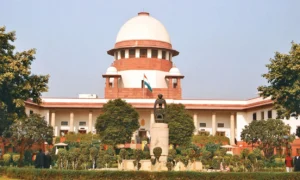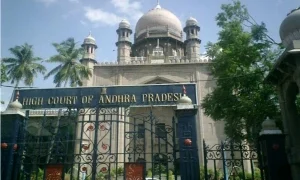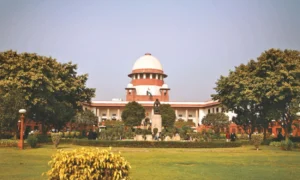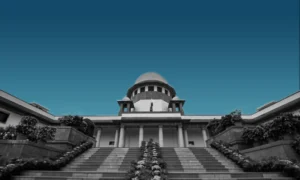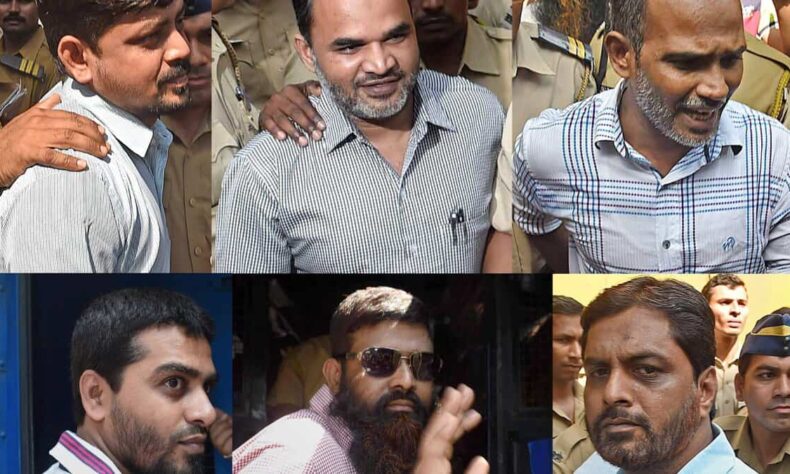
Courts Slam Copy-Paste Confessions
Mumbai, July 23: The Bombay High Court has once again raised serious concerns over the increasing “copy-paste” culture in confessional and witness statements submitted by law enforcement agencies, calling it a “dangerous” trend that undermines the integrity of the criminal justice system. This issue resurfaced prominently on Monday after the High Court acquitted all 12 accused in the 2006 Mumbai train blasts case, citing “identical and incomplete” confessional statements that appeared to be copied.
A special bench comprising Justices Anil Kilor and Shyam Chandak, in a detailed 671-page judgment, highlighted the striking similarities in the confessional statements of the accused. The court included comparative charts showing identical questions and answers — verbatim — across multiple statements, terming it “highly improbable” and damaging to the prosecution’s credibility.
“Even if questions were similar, the answers being identical and word-for-word is unbelievable,” the court observed, adding, “Two people can narrate similar events, but not using the exact same language in the same sequence.”
A Recurring Judicial Concern
The High Court has raised red flags about this troubling trend in recent months. In May and June 2024, the court flagged similar copy-paste witness statements in other criminal cases and directed the Maharashtra government to issue guidelines to curb the menace. The court warned that such practices threaten to erode the reliability of evidence and the fairness of trials.
In its ruling on Monday, the court pointed out that the prosecution’s reliance on the confessions was deeply flawed, saying:
“These charts strengthen the defence’s claim that the confessions were not given voluntarily, and that signatures were obtained forcefully by ATS officers.”
ATS Investigation Under Scrutiny
The 2006 train blasts, which claimed 189 lives and injured over 800, led to one of the most high-profile terror investigations in Maharashtra. In 2015, a special court convicted 12 accused, relying heavily on confessional statements recorded by seven DCPs under the Maharashtra Control of Organised Crime Act (MCOCA). The defence had long argued that the confessions were obtained under duress, citing allegations of torture, threats, and forced signatures.
The trial court had dismissed these concerns, calling the torture claims “baseless” and asserting that the confessions were recorded before magistrates and under legal safeguards. It rejected the argument that identical mistakes and language pointed to fabrication.
However, the High Court on Monday took a starkly different view, stating that the similarities “spoke volumes about the credibility, reliability, and truthfulness” of the statements and significantly weakened the prosecution’s case.
Police Stand by the Investigation
Reacting to the acquittal, former Mumbai Police Commissioner A N Roy expressed shock and defended the investigation.
“The probe was conducted professionally by the ATS, and only those with a core role were charge-sheeted. There was no witch hunt,” Roy told PTI.
“We presented a strong case backed by solid evidence,” he added.
Despite the defence’s arguments, Roy asserted that the ATS built a watertight case based on truthful collection of evidence and due diligence.
Government Response Awaited
With repeated reminders from the judiciary, the ball is now in the Maharashtra government’s court to ensure structural changes in how evidence — particularly confessions and witness statements — are recorded and presented in court. The demand for a standardised, tamper-proof, and transparent protocol is gaining momentum.
This case now serves as a major turning point in the debate over custodial confessions, systemic police practices, and the preservation of justice in terrorism-related prosecutions. As the state gears up to respond to the court’s directive, legal experts are calling for urgent reforms in investigative processes to uphold the sanctity of judicial proceedings.
Also Read: Police Can’t Act as Recovery Agents
🖋️ Opinion “Copy-Paste Confessions Are a Threat to Justice Itself”
The recent acquittal of all 12 accused in the 2006 Mumbai train blasts case by the Bombay High Court should not just be seen as a legal judgment — it is a sharp indictment of the investigative rot that has seeped into our criminal justice system.
When a High Court says that “certain portions of confessional statements are identical and appear to have been copied”, it isn’t just pointing at a sloppy investigation — it’s exposing a systemic failure that could ruin lives. This isn’t a paperwork error. This is the criminal justice system risking the incarceration — or even execution — of potentially innocent people on the basis of manufactured evidence.
The fact that police statements, supposed to reflect individual truths and experiences, mirror each other word-for-word raises chilling questions. Is this how we are investigating terror cases in India? If so, then we need to fear not just the terrorists — but the shortcuts taken by those claiming to fight them.
I’m not claiming that every acquitted person is innocent, nor that the police don’t face immense pressure in complex cases. But confessions must be independently made, without coercion or scripting. Any police force that allows — or worse, encourages — templated statements is walking a dangerous path that ultimately weakens public faith in justice.
Terror investigations must be professional, watertight, and transparent. Because when they are not, the real perpetrators escape, and the innocent become collateral damage in the name of “national security.”
The Maharashtra government must not treat this as a judicial reprimand alone. It must use this as a wake-up call to clean up investigative protocols, safeguard rights of the accused, and make justice the ultimate priority — not convictions at any cost.
Let’s not forget: today it was 12 acquitted. Tomorrow, it could be someone you know — tried, convicted, and condemned by copy-paste justice.
— Naveed Uddin Khan Uzair
Opinion Contributor, Crime Today News
This article is published by Crime Today News ©

